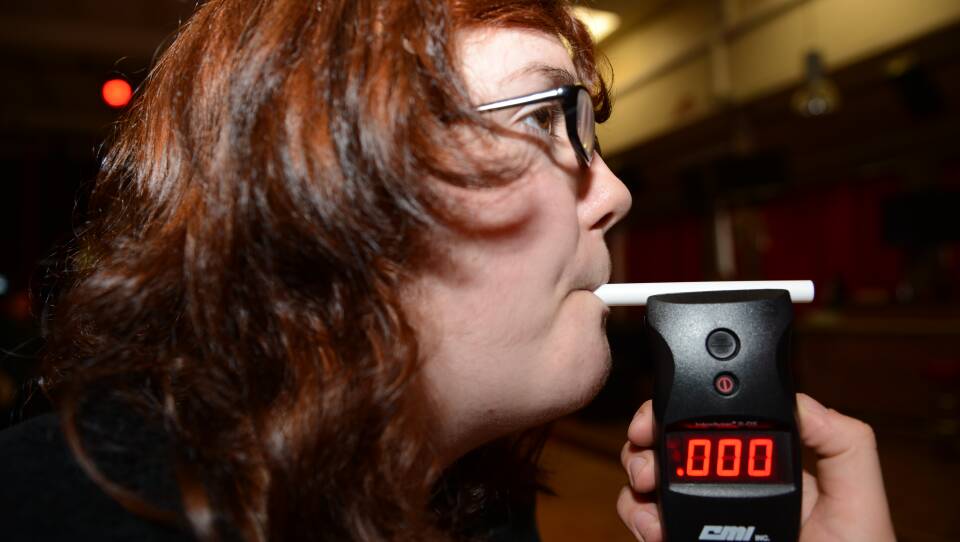Massachusetts law enforcement can start using breathalyzer evidence in drunk-driving cases again. Their use had been barred earlier this year amid concerns that the machines used to perform the tests were not properly calibrated and were providing unreliable results. Reporter Julie Manganis of the Salem News has been following the story. She spoke with WGBH Radio’s Arun Rath about the case. This transcript has been edited for clarity.
Arun Rath: So first off, could you refresh our memories and remind us what exactly was wrong with the breathalyzer tests and why they were barred as evidence in the first place?
Julie Manganis: Well, a couple of things happened. About four years ago, it was learned that the machines that the state purchased in 2011 were never properly calibrated to the Massachusetts standard. So Massachusetts has a much narrower standard of tolerance than other states, margin of error you could say. And in the process of investigating that, it turned out that the machines had also never really been vetted by a court to determine whether they were reliable. And so there was a series of hearings and then subsequent to that, we learned that the state Office of Alcohol Testing had actually withheld some information that called into question the reliability of the machines. And so as a punishment or sanction, the judge ordered that all of the results be barred from use in court for a period of several years, going back to when the machines were first purchased. And the order now has been lifted, and the results can now be used again in court, provided that the machines have been re-certified and re-calibrated, which is ongoing.
READ MORE: New Ruling Bans Use Of Breathalyzer Tests As Evidence In Mass. Courts
Rath: So do the police have new or re-calibrated machines ready to go, or how long will it take before they start using the machines again?
Manganis: Well it's not clear. I know they've been using the machines all along, but the results haven't been admissible in court. People were still being offered breathalyzer tests, because there are also civil consequences involving your driver's license if you refuse a breathalyzer. So now, what has to happen is all of the machines in all of the cities and towns in Massachusetts, the State Police, and on college campuses, have to be re-certified and re-calibrated. And that's going to take some time. I think I read one figure that suggested that there were 90-percent of the machines that had to go through this process. But the ruling also allows prosecutors to use the results right away in cases that involve motor vehicle homicide, or serial offenders, or serious injury.
So those people will still face the prospect of having those results used against them in court.
Rath: Getting back again to the machines that have the problems with the calibration and so on - what's happening now with the cases of people who are convicted using evidence from those improperly calibrated devices?
Manganis: Most of the cases are resolved. In most cases in Massachusetts in a first offense, it's continued without a finding and then dismissed as long as you comply with conditions. So a lot of those people are probably not going to challenge their convictions and ask for a new trial. A lot of the cases were on hold while this was being sorted out. Some of those are now starting to come back onto the trial list, but it hasn't had the widespread impact so far that we've seen in some of the other state lab scandals.
Rath: Where do things move from here? Are there any more legal remedies that have to be applied or is that justice a situation of getting the new machines working and out there?
Manganis: They're basically the same machine, they just have to be reprogrammed, essentially. The other issue is whether defense lawyers are going to use this now. They may want to call into question the reliability of the machines. They may look at things like the training of the officer who administered the test or the records of the machine, as to when it was serviced and calibrated. And I think that's always happened. But barring any other appeals, the results will come into court now, along with other evidence of impairment that has been admissible all along, such as officer observations and witness accounts.
READ MORE: Breathalyzers And The Latest State Crime Lab Controversy
Rath: So it sounds like even with this order going through we're still going to hearing a lot about this story for a while?
Manganis: We could. As awareness spreads, there could be people who might have had a second or third offense conviction or who are facing a second or third offense charge who want to now vacate some of their earlier cases, or who want to challenge a conviction because there are all sorts of collateral consequences with regard to losing your license or people have lost jobs or had childcare difficulties. All of those collateral consequences come into play, especially on a subsequent offense. And so therefore people might want to come in and challenge their earlier conviction if it was based solely on the breathalyzer.
Rath: Thanks for helping us get a handle on this, Julie.
Manganis: Any time.
Rath: That's Julie Manganis of the Salem News, telling us how a judge has now cleared the way for Massachusetts law enforcement to once again use breathalyzer tests in drunk driving cases. But it might be a while before those breathalyzer tests are out there. This is WGBH's All Things Considered.





